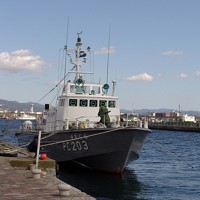A common theme in international relations debates today centers on the need to move beyond stovepiped bureaucracies and policy solutions to more effectively respond to the interconnected challenges of a world defined by the forces of globalization. In particular, numerous governmental and multilateral strategic policy directives over the past few years have emphasized the importance of combining efforts that build defense and security capacity with projects to further development needs. While widespread and pragmatic implementation of this powerful rhetoric remains a relative rarity, recent efforts by the Japanese government offer a good example of one way forward for this kind of hybrid development policy.
For the past six years, Japan has demonstrated an increasingly progressive approach to coordinating capacity-building in defense, security and development. It has pursued these efforts with the stated goal of utilizing development activities to meet the needs of developing states while furthering Japanese strategic objectives. For example, in June 2006, Tokyo announced its decision to donate three patrol boats to Indonesia through Japanese official development assistance (ODA). Provided through formal development channels, the boats did not carry weapons and were banned from being transferred to another country. Instead, the vessels were intended only for limited use, covering primarily counterterrorism and anti-piracy efforts.
In April 2009, under a grant aid program, the Japanese International Cooperation Agency (JICA) transferred high-tech equipment to the Philippine Coast Guard for use in maritime safety and security. Transferred equipment included satellite communications systems, a VHF/HF radio system, a microwave communications system and transmitting and receiving equipment for various stations. Members of the Japanese coast guard have also conducted joint anti-piracy and counterterrorism exercises with their Filipino counterparts.

